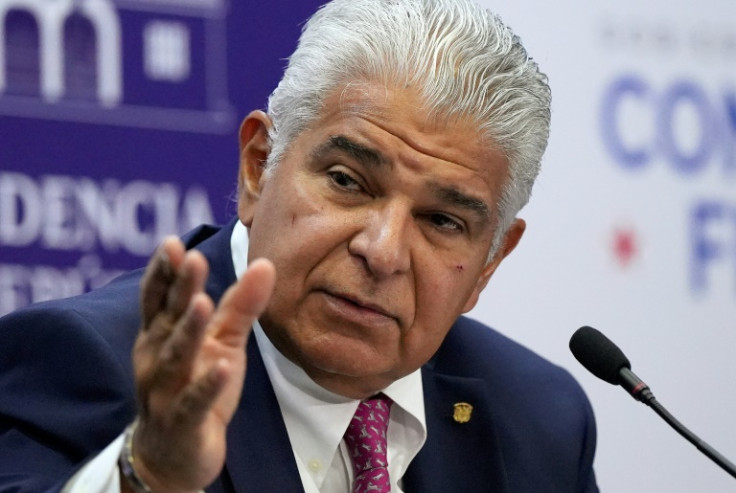
Panamanian President José Raúl Mulino made sure to clarify the reach of the memorandum of understanding (MOU) he signed with the U.S. a few weeks back regarding the managing of the flow of migrants through the Darien Gap, minimizing his country's overall involvement.
In the agreement, the Biden administration committed to covering the repatriation costs of migrants apprehended while crossing the Darién Gap, a treacherous jungle path on the country's border with Colombia used by thousands of people daily on their way to North America.
"This is a United States problem that we are managing," Mulino, recently inaugurated as president, stated during his first weekly press conference. "People don't want to live here in Panama; they want to go to the United States."
The agreement, signed by Panamanian Foreign Minister Javier Martínez-Acha and U.S. Secretary of Homeland Security Alejandro Mayorkas, included U.S. support for Panama with equipment, transportation, and logistics for foreigners detected within migratory flows that violate Panamanian immigration laws.
Mulino also added another clarification during the conference: he said that migrants entering Panama through the Darien Gap will only be repatriated if they agree, something that could potentially reduce the impact of stricter immigration enforcement he had previously advocated for:
"If migrants don't want to return to their countries then they'll go (to the U.S.). I can't arrest them, we can't forcibly repatriate them."
Mulino, who took office on July 1, had promised to curb the increasing flow of migrants from Colombia. Among the measures taken, Panama's border police have erected about three miles of barbed wire to block some trails and direct migrants to a single reception point.
Last week, Panama's border police revealed that migration through the Darien Gap had significantly declined in July with 11,363 migrants crossing the border since the first day of the month, about 9,000 fewer than the same period last year.
Mulino also expressed hope that the upcoming presidential election in Venezuela on July 28 could reduce the number of Venezuelan migrants, who constitute more than half of those crossing the Darien.
"Practically all of Venezuela is walking through there every day. If the elections in that country are carried out properly, respecting the popular will regardless of who wins, I'm sure that number will go down."
© 2024 Latin Times. All rights reserved. Do not reproduce without permission.







